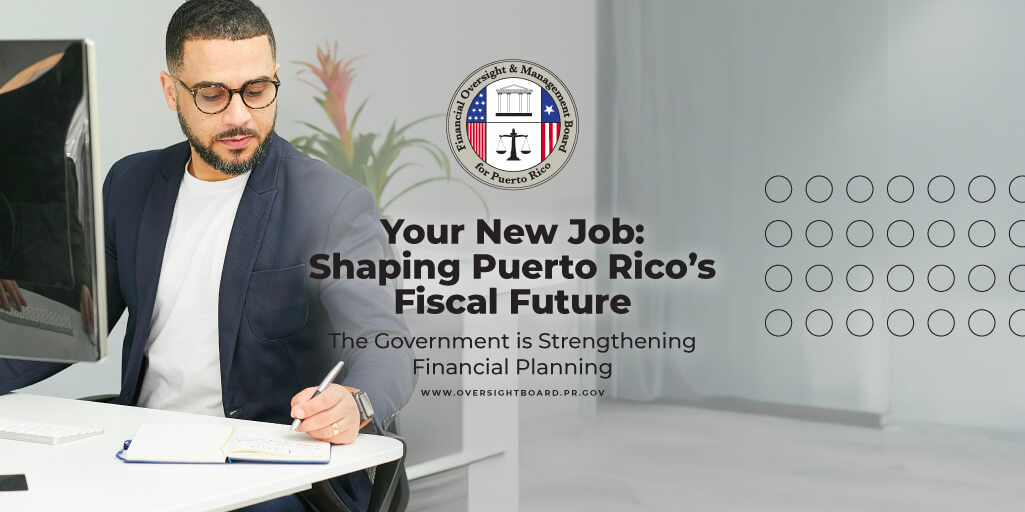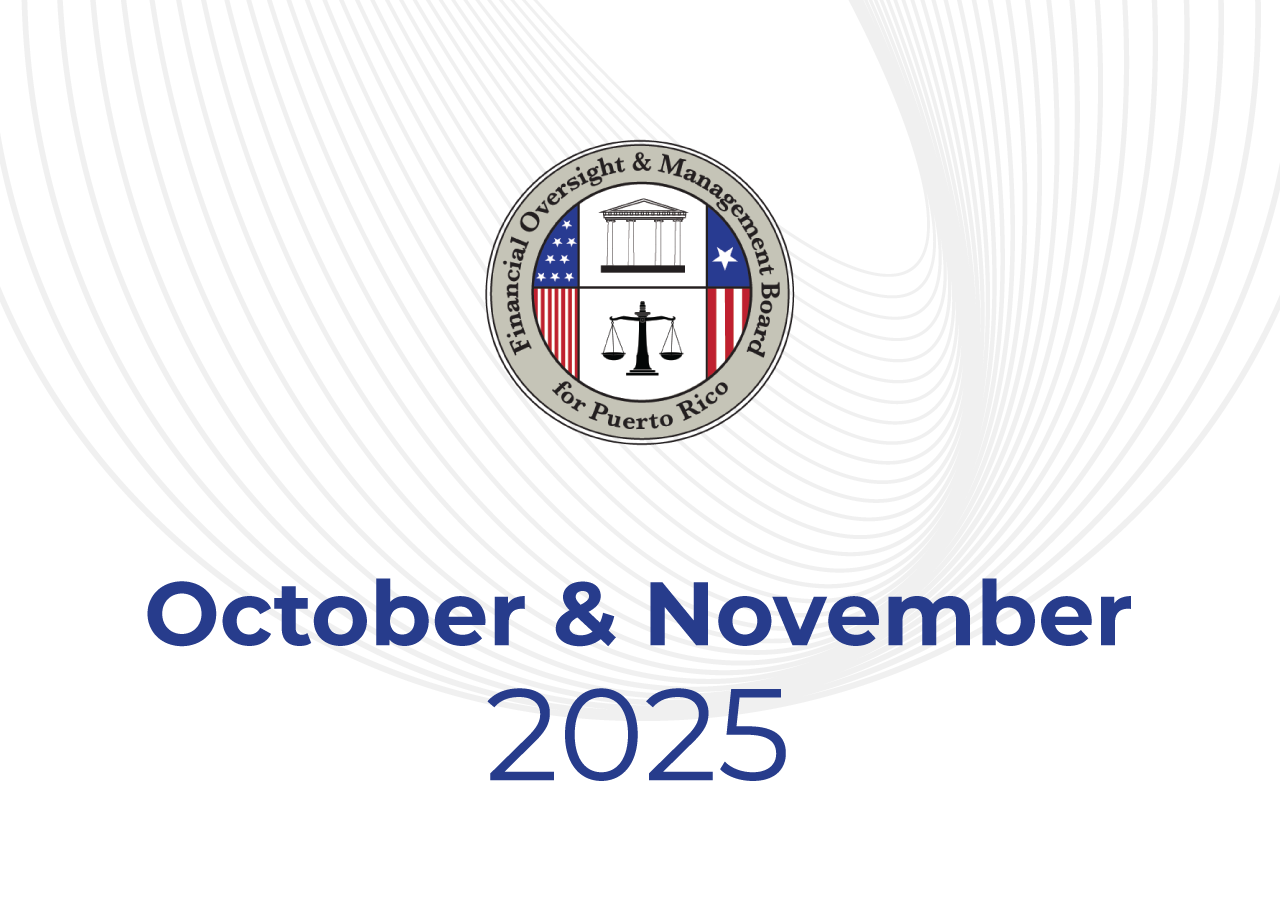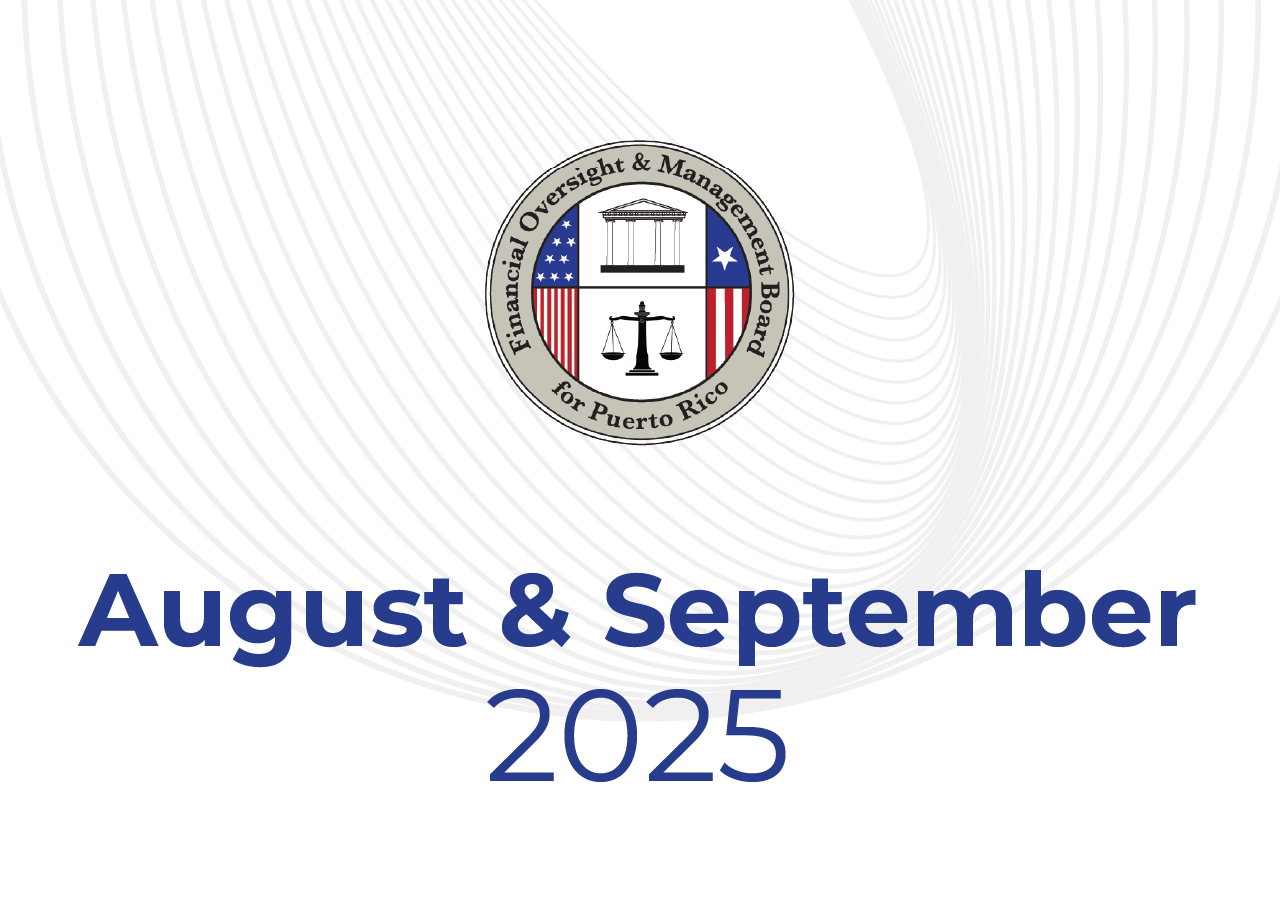This column was originally published in Spanish by El Nuevo Día on February 20, 2022
Real change is never easy, yet the Puerto Rico Aqueduct and Sewer Authority (PRASA) is showing the island that it can be done. With hard work, dedication and discipline, the fruits of this labor are becoming increasingly evident.
There is still much work to be done, especially in reducing water losses and producing balanced budgets according to modified accrual accounting rules. Nevertheless, working together with the Financial Oversight and Management Board and following its Certified Fiscal Plan as the roadmap for improvement, PRASA is transforming its fiscal and operational conditions to provide better services.
Historically, PRASA has been hampered by an old, expensive, and inefficient infrastructure. This is evidenced by the system’s high levels of water losses, of which 60% never reaches customers, or if it does, is not billed due to theft or meter error. Due to a lack of financial stability, exacerbated by Puerto Rico’s fiscal crisis, capital improvements projects had been effectively suspended since fiscal year 2015.
Yet the people of Puerto Rico depend on clean and reliable water for drinking, cooking, and cleaning — for life. The recent heavy rains, with about 12 inches of rainfall in some part of the island in 48 hours, also highlight the importance of a solid water and sewer infrastructure that can withstand the challenges brought on by climate change.
What has been accomplished? To obtain accurate information on water production, the Authority’s Fiscal Plans called for the installation of new master meters at key water treatment plants. In FY2021, PRASA completed the master meters project and increased its water production measurement from 44% to 83%, improving the management of this precious resource.
Regarding capital improvements, already under construction are 26 projects — a $203 million investment for the people of Puerto Rico, including replacing pipes to reduce water loss, and a new central laboratory that tests water for bacteria and minerals. These projects will improve service reliability and provide essential services for customers.
Other projects in the pipeline include dredging the Carraízo Reservoir (over $59 million) to increase water availability and reduce the need for water rationing in times of drought and improving PRASA’s inefficient metering infrastructure to increase billing accuracy (nearly $300 million). PRASA’s capital improvement program envisions annual investments of $548 million between FY2022 and FY2026.
How is PRASA able to carry out these important projects? First, the Authority has reprofiled nearly $1 billion in federal debt and carried out two bond refunding transactions. The result was nearly $1.1 billion in savings over the life of these instruments. Second, government collections have improved, resulting in nearly $155 million collected from central government agencies, public corporations and municipalities. Third, modest rate increases, equivalent to 64 cents a month for most residents, have generated nearly $300 million since FY2018, helping to stabilize and bolster PRASA’s cash reserves.
Going forward, reducing water losses is an important task ahead. PRASA has received an obligation of nearly $3.7 billion in FEMA funds for reconstruction projects, and the Authority expects to ramp up this work in the coming year.
PRASA, as mandated by PROMESA, also needs to produce a balanced budget according to modified accrual accounting rules. This requirement is incumbent on the Commonwealth government and all covered instrumentalities under PROMESA.
The last notable project at PRASA involves reducing commercial losses by replacing old water meters with new and more accurate “smart” ones. The smart meters will improve billing capabilities by reducing meter inaccuracies and help the utility better identify theft and leaks.
PRASA will soon begin public hearings on its rate structure. This process is important to ensure continued fiscal responsibility, as adequate revenue levels – the amount needed for operational needs & capital upgrades – are key to ensuring reliable, affordable, and safe water for Puerto Rico.
The Oversight Board will continue to work with PRASA to ensure that the Authority’s transformation will last, for the benefit of the people of Puerto Rico.





